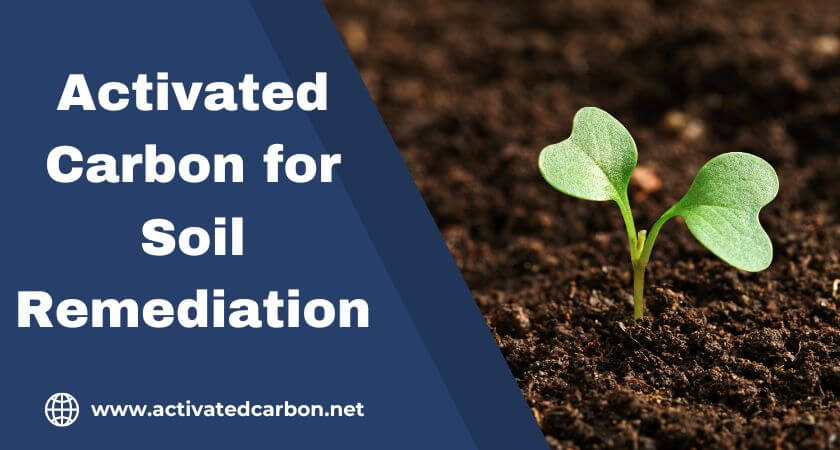
In today’s rapidly developing industrial society, soil pollution has become a major challenge before us. The continuous erosion of pollutants such as sewage, waste gas, chemical fertilizers, pesticides, etc. has caused the soil to lose its ecological functions. In order to solve this serious problem, activated carbon has become an important tool for improving soil quality due to its excellent adsorption performance and diverse application fields.
Activated carbon is a special carbon material with high porosity and high surface area. Its adsorption characteristics can effectively remove organic and inorganic substances in the soil, including toxic and harmful substances. At the same time, activated carbon can also regulate the nutrients and structure of the soil, providing important support for soil health. This blog will show the detailed application of activated carbon in the soil improvement.
Activated carbon for soil application
Soil remediation
Currently, three commonly used contaminated soil remediation technologies include washing method, heat treatment and steam method. In these three methods, pollutants in the soil are first transferred to the liquid phase or gas phase, and then removed through activated carbon. Although the transfer pathways are different, activated carbon is required as the adsorbent. Depending on the pollutants, different activated carbons need to be used for targeted adsorption.
Soil improvement
Adding an appropriate amount of activated carbon to the soil can improve the physical structure and chemical properties of the soil, adjust the application effect of fertilizers and pesticides, reduce the pollution of pesticides and chemicals, and also improve barren soil and promote the growth of plant seedlings.

Acidic soil
The formation of acidic soil is mainly due to the dissolution of aluminum, iron and other elements and silicate and other substances in the soil, which increases the hydrogen ions in the soil, causing the soil to become acidic. Acidic soil will prevent plants from absorbing nutrients normally and restrict their growth and development.
Using an appropriate amount of activated carbon can improve acidic soil, increase the pH value of the soil, and reduce the hydrogen ion concentration in the soil, thus improving the chemical properties of the soil and increasing soil nutrients. At the same time, activated carbon can absorb harmful substances in the soil, improve the soil’s aeration and water retention, and improve the soil structure.
Do you plan to purchase activated carbon?
FAQ:
Activated carbon can be used to improve soil structure, increase soil porosity and permeability, and improve soil water retention and air permeability. In addition, activated carbon can adsorb and reduce harmful substances in the soil, thereby improving soil quality and the environment.
1. It can improve the physical and chemical properties of soil, such as changing soil texture, increasing field water holding capacity, increasing soil PH value, increasing salt exchange capacity, reducing soil density and bulk density, increasing soil cation exchange capacity, etc.
2. It can increase the stability of soil organic carbon and promote the improvement of soil organic matter levels, thus increasing soil fertility.
3. It can improve the status of soil nutrients.
4. Promote crop growth, increase seed germination rate, and increase crop yield.
1. Mix directly into the soil: Mix an appropriate amount of activated carbon with soil, mix well and put it into the area where plants are planted.
2. Make activated carbon fertilizer: Mix activated carbon powder with organic fertilizer to make activated carbon fertilizer and apply it to the soil.
Conclusion
In soil remediation projects, activated carbon has demonstrated strong adsorption capacity and has a significant removal effect on harmful substances such as organic matter and heavy metal ions in contaminated soil. By adding activated carbon, we can effectively reduce the migration and penetration of pollutants, thereby reducing the degree of soil and groundwater pollution and effectively promoting the restoration of soil ecosystems. If you need to know more about the application of activated carbon in soil remediation, welcome to contact Zhulin Activated Carbon, we will wholeheartedly provide you with professional solutions.